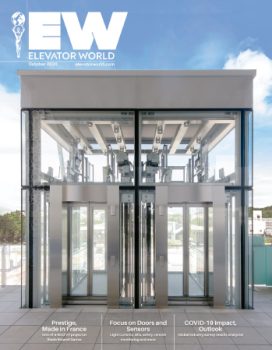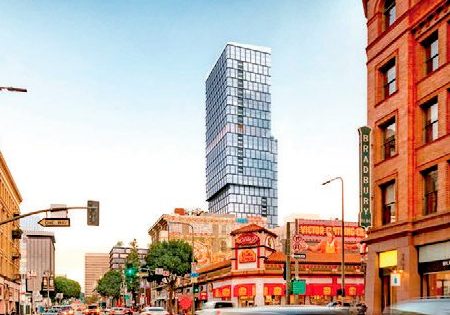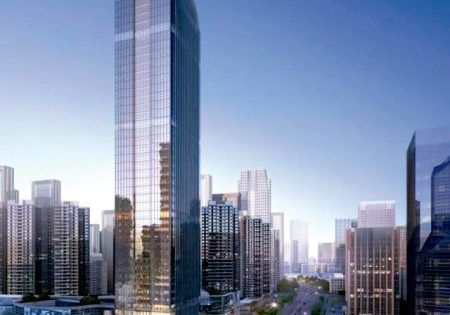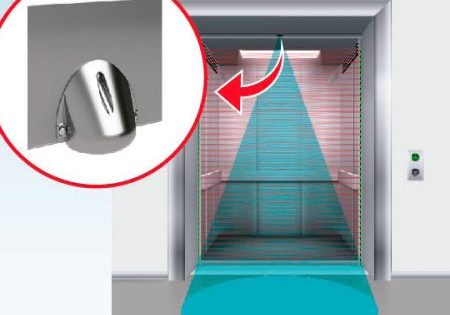The Chestnut Street corridor is hot, reports Philadelphia YIMBY.
Oct 1, 2020

Medical, Office Towers for Downtown
Jefferson Health plans to build a 400-ft-tall medical and a 329-ft-tall residential tower in the 1100 block of Chestnut Street in the Market East neighborhood. The tower, dubbed Jefferson Health Care Specialty Care Pavilion, will offer 750,000 ft2 of medical office space at 1101 Chestnut Street, and the residential tower will provide 250,000 ft2 for residences. Designed by BLT Architects and Ennead Architects, the project known as East Market Phase 3 represents Jefferson Health’s continued expansion. The development will replace a 1940s-era parking lot between South 11th and 12th streets, and is scheduled for completion in June 2023.
City Welcomes New Residential Tower
Since it was first unveiled (ELEVATOR WORLD, September 2018), a 344-ft-tall, 420-unit residential tower at 3720 Chestnut Street in the University City part of Philadelphia has been highly anticipated. The Chestnut officially opened on July 1. Designed by SITIO Inc. and developed by EGP Urban Multifamily, the latest addition to the University City skyline features a simple design: “a vertical L-shaped structure with a slimmer section to the south, topped with a mechanical bulkhead between the two sections.” Metal and glass grace the north and south sides of the concrete building, which holds 427,100 ft2. Hunter Roberts Construction Group handled construction, which progressed quickly, reaching ground level in March 2019 and topping out five months later.
NYCHA Elevators Experiencing COVID-19-Related Crisis
Elevators serving the 320 NYC Housing Authority (NYCHA) complexes that house 400,000 residents, including many senior citizens, are experiencing a COVID-19-related crisis, with outages spiking during the pandemic due to a dearth of workers and what residents and union representatives describe as subpar maintenance and poor planning by the authority, The City reported in August. In an effort to curb virus spread, the authority cut back on planned, preventive maintenance of its nearly 3,200 elevators. Planned outages dropped “nearly a thousandfold” from late April to late June, while unplanned outages rose, trapping residents in their homes, the source said. A worker shortage was an existing problem made worse by the pandemic, with NYCHA hiring untrained city laborers as elevator mechanic helpers, rather than union members who had completed three-year apprenticeships. An attorney for NYCHA said the authority’s use of minimally trained laborers was due to another city department failing to provide a list of eligible candidates. After the COVID-19 peak in NYC, elevator outages began to climb, resulting in 6,830 outages this year in April 1-June 24, versus 6,784 last year. The authority had counted on a drastic drop in elevator usage resulting in fewer outages, but that didn’t come to pass.
Get more of Elevator World. Sign up for our free e-newsletter.









